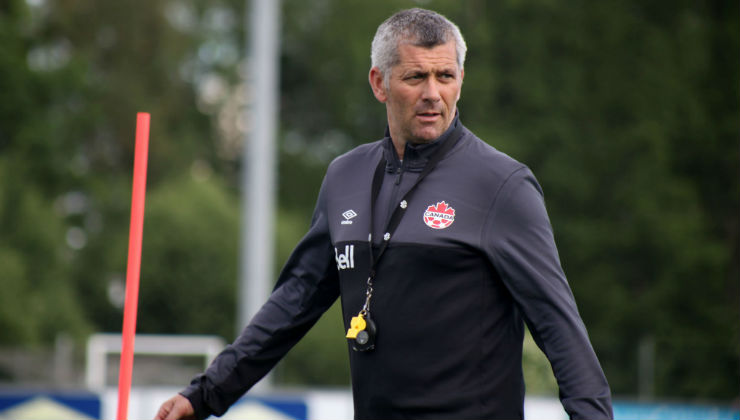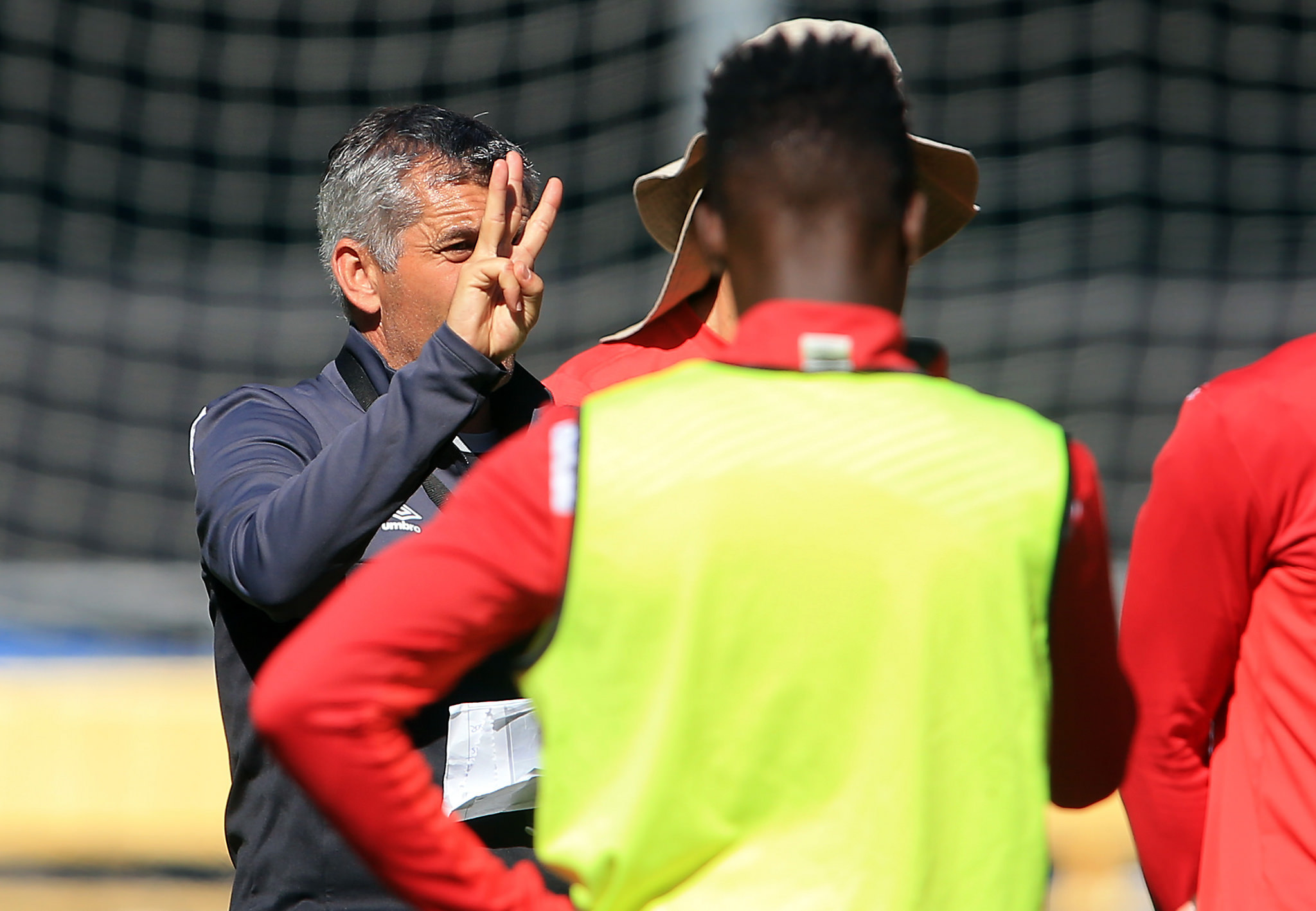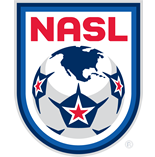Q&A With Canada Men’s National Team Assistant Coach Michael Findlay

Photo credit: Canada Soccer
Next month, Canada will play crucial World Cup qualifiers against Honduras and El Salvador with a berth in the final round of qualifying in CONCACAF on the line. Assistant coach Michael Findlay spoke with Jack Bell of NASL.com about the games and the current and future contributions of players from the NASL's FC Edmonton and Ottawa Fury FC.
Bell: What’s your sense of Canada’s team as we get closer to those next World Cup qualifiers?
Findlay: I think that Benito [Floro] and the entire staff feel very good about our process. We have been going through a period of growth since the new staff came in and every time we get together and have a competitive match we seem to learn and get better. It’s noticeable. In general, we’re all in a good mindset. The players are in a good mindset and have a positive anticipation leading up to the September matches. We had two good games in Austria (a 2-1 win over Azerbaijan and a 1-1 draw against Uzbekistan), and it was really good to see how the players were reacting to direction from Benito and the staff. There was a good spirit.
The reality is it’s going to be very difficult. CONCACAF is an incredibly difficult region to qualify from. To get out of this round is difficult and hopefully we can execute and then see where we are.
Bell: With Mexico sitting in first place on 12 points, it looks like it’s a three-way fight for second place (Honduras and Canada each have four points; El Salvador has two).
Findlay: To be frank, I think Benito and the staff have always said that progression is the key. Sometimes you don’t have control of results. What you do control is how you apply yourself and what we’ve said to the players is let’s apply ourselves well. Moving to the next stage counts as success. Second place or top of the group is not relevant. Progressing is part of the building process we’re trying to put in place. Mexico, after having had success in its first games, has positioned themselves well. Their games may have been different than in the Copa, and that might change their mindset a bit about what they have to do in their remaining games, it’s something to take into consideration. We’re focusing on what our players need to do to progress and to be part of the hex (the final, six-nation regional qualifying round in with the top three finishers will automatically advance to Russia).

Photo credit: Canada Soccer
Bell: What’s your view on the talent bubbling up from academies, like the ones at FC Edmonton and Ottawa Fury FC?
Findlay: My experience goes back to when I was head coach of the U-15 team, moving through the entire group at U-20 and U-23. There’s been a lot of work done behind the scenes on the national team program by [technical director] Tony Fonseca and [U-20 coach] Rob Gale. What we’re trying to do is to positively affect the largest group of players we can through the academy system, scouting and evaluating, looking to vertically integrate the entire program. Ideally, we’d like to see a larger pool of players that the senior team can choose from.
One of our goals is to expand that list of players, and we have done that on the backs of some of the great work done in youth programs and the professional academy system. We’re pleased with the steps taken, but we’re a long way from where we want to be with a larger group, which we haven’t had in the past, presented to Benito for him to consider. In the last two [World Cup] cycles the teams that ultimately qualified were looking at 35-plus players. We weren’t anywhere close to reaching that, but we’re getting closer. It gives us great possibility in the future.
Bell: So what’s your impression of the academies of the two NASL clubs in Canada?
Findlay: I think it is really a statement that the necessary elements for us to be successful really are about building a base. We know that geographically we’re a massive country. We now have established academies at the NASL and MLS levels and we thank those clubs for their commitment and investment. We still need to continue to expand that base, we need to raise the level of professionalism around all of our players, and hopefully that affects their development.
At the NASL level, it’s been a great opportunity for the league to establish those academies and some of the players are starting to bump against their first teams. It bodes well for our youth teams, initially. If we are doing our jobs and building strong relationships it will affect our senior team. All these academies give us a larger footprint. If they didn’t exist we would have huge holes in the program geographically.
Now our youth team coaches are able to go into FC Edmonton and Ottawa and they’re seeing players who have quality and pushing against the rest of players in the country for selection. It’s the best news we can have because in the past we didn’t have that.
Bell: In recent months, a number of Canadian players – guys like Ben Fisk, Maxim Tissot, and Jamar Dixon, for example – have returned to play quality minutes in the NASL. Is that something you look upon positively?
Findlay: We get emails and notes about this or that guy at someplace like Dortmund and say it’s interesting. But then we find that they never train or play. If they’re not playing or training it is irrelevant at the end of the day. We want our players in the best possible atmosphere they can be in, training and playing, it’s an overall holistic point of view. For me and Benito, can they be playing a reasonable amount of minutes and are they being educated and led well? What bodes well is we look to Ottawa and Edmonton and others in NASL teams stateside, and they are playing and getting those minutes. It’s a testament to those clubs that want to bring them back. It bodes well for us and we’re going to benefit because all of a sudden a returning Canadian has had an established career and can help those other young players.
One of the biggest challenges we have found over the years is that there are lots of players in professional football, but a lot that are not professional footballers. They really have got to learn the trade. We’ve now established a foundation to build from. Now it’s all about education, leadership, and direction.
Would we like them playing minutes in [England’s] Premier League or elsewhere in Europe? Of course, but for many of them it might not be realistic. We’re glad to have them back and the clubs have been so positive in the process of bringing them back. It also helps the fans to become more familiar with the players and feel an allegiance to their local clubs.

